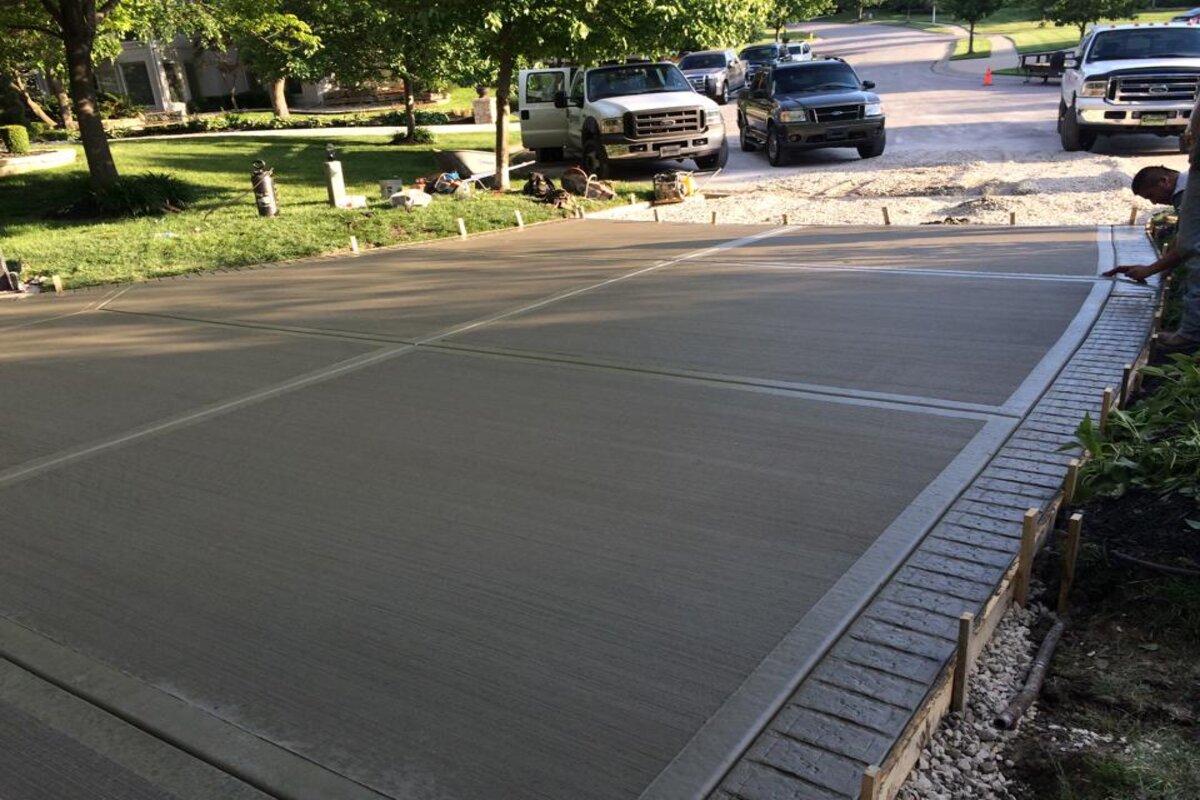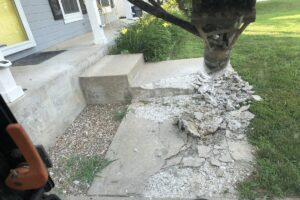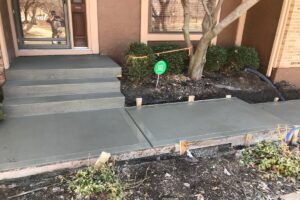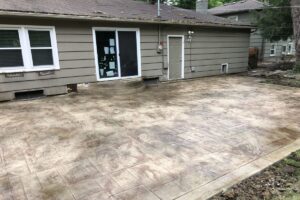Getting a new concrete driveway installed is an excellent option whether you’re a homeowner or a business owner. Driving on new concrete driveways simply have advantages that asphalt and gravel driveways can’t match. For instance, concrete driveways are more durable, more customizable, offer easier maintenance, and have a longer lifespan.
After getting fresh concrete installed, it’s critical to wait the allotted time before walking or driving on the new material. If you do not wait long enough, you can end up ruining your new driveway before you get to enjoy it.
When Can I Drive On A New Concrete Driveway?
You should typically wait between seven and ten days from the last pour of concrete before driving on your newly installed concrete driveway. After seven days since the driveway was placed, the concrete will have attained about 70 percent of its potential strength.
Therefore, there are still some precautions to take during this time. For example, avoid parking and driving with heavier trucks and RVs on the driveway. Also, ensure you avoid parking and driving on or near the edges of the driveway because those areas are more vulnerable to damage.
After 30 days since installation, it is safe to park and drive on your concrete driveway with normal vehicle traffic. Still, heavier commercial vehicles like moving vans and garbage trucks will damage the concrete at this time.
When Can I Walk On A Fresh Concrete Driveway?
It is safe to walk on fresh concrete for one to two days from the time of installation. You risk your concrete driveway getting permanently damaged if you walk on the surface beforehand.
Also, make sure you keep your pets off of your new driveway for at least a couple of days, as their claws can dig into the concrete and leave permanent marks.
Although waiting may seem like a little bit of a hassle, it’s better to follow these steps and avoid damaging your long-term investment.
What Things Impact Concrete Curing Time?
There are a few factors that affect the length of time it takes for fresh concrete to cure successfully, the two most prominent being temperature and the water-cement ratio.
Concrete cures best when temperatures range between 60°, and 80° F. New concrete can take significantly longer to cure at colder temperatures. The curing process can even stop completely if the air temperatures are cold enough.
On the other hand, when we install concrete in the summer, we have to slow down the curing process because the extreme heat and humidity increase the evaporation of the surface moisture on the freshly poured concrete causing it to dry too fast. Drying too fast can result in surface cracking.
The second factor that impacts concrete curing time is the water-cement ratio of the concrete mix. When concrete installers add more water to the concrete mix, it can have a negative effect on the material’s strength and curing time.
That’s why at Johnson Concrete, we use a water reducer. That said, a water reducer ensures there isn’t too much water in the concrete mix that ends up diluting the mix.
Why Is It Important To Let Fresh Concrete Cure?
Although fresh concrete sets within a matter of hours after a team of experts pour it, the material still needs to develop the strength required to resist weight and impact.
It’s essential to let fresh concrete cure so the surface is durable and wear-resistant. Plus, concrete driveways are an investment. With that, giving the concrete the time to settle allows it to be as stronger and long-lasting as it’s designed to be.
Get A Brand New Concrete Driveway Installed By Professionals
After you get a fresh concrete driveway installed, it is best to wait seven to ten days from the last pour before driving on the surface with cars and sedans. For heavier trucks and RVs, it’s best to wait about 30 days.
If you drive on your concrete driveway before it is finished curing, you can cause permanent structural damage and cracks. Although it is a bit of an inconvenience, it’s best to take every precaution to protect your long-term investment.
Contact our team of professionals at Johnson Concrete to get a quote on a new concrete driveway today!




